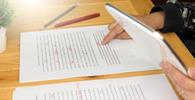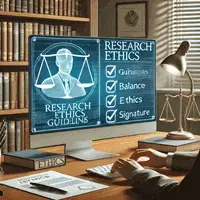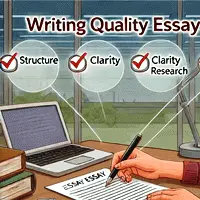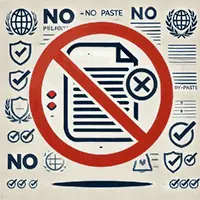 The pursuit of knowledge and the advancement of human understanding has been intricately linked to the world of research and academia. In this age of information, where data is readily available at our fingertips, the importance of conducting original research and producing authentic scholarly work cannot be disregarded. However, in the realm of academia, there is a persistent challenge that researchers face, plagiarism. Plagiarism, the act of using someone else's work or ideas without proper attribution, not only undermines the integrity of research but also tarnishes the reputation of scholars. To combat this issue, researchers often seek assistance in assignment plagiarism correction, and this is where our comprehensive guide comes into play. At Research Writing Help.com, we understand the significance of producing original research, and we are committed to helping researchers maintain the highest standards of academic integrity. Our mission is to provide researchers with the necessary tools and guidance to identify and rectify plagiarism in their research projects. In this guide, we will delve into the world of plagiarism correction and offer insights into how we can assist you in ensuring the authenticity and credibility of your research. One of the key services we offer is comprehensive help with reviewing plagiarism in a research paper. We recognize that even the most diligent researchers may inadvertently include plagiarized content in their work, whether due to oversight or misunderstanding. Our team of experienced experts is well-versed in various plagiarism detection tools and techniques, and we have a deep understanding of the nuances of academic writing and citation styles. When you turn to us for help, you can rest assured that your research paper will undergo a thorough examination to identify any instances of plagiarism. Our plagiarism correction process is meticulous and involves a multi-faceted approach. We begin by conducting a systematic analysis of your research paper using state-of-the-art plagiarism detection software. This initial scan helps us pinpoint any potential areas of concern. Once identified, our team of expert editors and proofreaders carefully examines the flagged sections to determine whether they indeed constitute plagiarism or if they are instances of coincidental similarities. We understand that not all instances of textual overlap are intentional acts of plagiarism, and we take great care to differentiate between genuine misconduct and innocent mistakes. Furthermore, we go beyond merely identifying and highlighting problematic areas. We provide comprehensive guidance on how to properly attribute sources, cite references, and rephrase content to ensure that your research paper adheres to the highest standards of academic integrity. Our goal is not only to correct plagiarism but also to educate and empower researchers to avoid plagiarism in the future. As you embark on this journey to enhance the integrity of your research, remember that you are not alone. We are here to offer guidance, support, and expertise every step of the way. Our commitment to academic excellence and integrity is unwavering, and we are dedicated to helping you achieve your research goals while upholding the highest ethical standards.
The pursuit of knowledge and the advancement of human understanding has been intricately linked to the world of research and academia. In this age of information, where data is readily available at our fingertips, the importance of conducting original research and producing authentic scholarly work cannot be disregarded. However, in the realm of academia, there is a persistent challenge that researchers face, plagiarism. Plagiarism, the act of using someone else's work or ideas without proper attribution, not only undermines the integrity of research but also tarnishes the reputation of scholars. To combat this issue, researchers often seek assistance in assignment plagiarism correction, and this is where our comprehensive guide comes into play. At Research Writing Help.com, we understand the significance of producing original research, and we are committed to helping researchers maintain the highest standards of academic integrity. Our mission is to provide researchers with the necessary tools and guidance to identify and rectify plagiarism in their research projects. In this guide, we will delve into the world of plagiarism correction and offer insights into how we can assist you in ensuring the authenticity and credibility of your research. One of the key services we offer is comprehensive help with reviewing plagiarism in a research paper. We recognize that even the most diligent researchers may inadvertently include plagiarized content in their work, whether due to oversight or misunderstanding. Our team of experienced experts is well-versed in various plagiarism detection tools and techniques, and we have a deep understanding of the nuances of academic writing and citation styles. When you turn to us for help, you can rest assured that your research paper will undergo a thorough examination to identify any instances of plagiarism. Our plagiarism correction process is meticulous and involves a multi-faceted approach. We begin by conducting a systematic analysis of your research paper using state-of-the-art plagiarism detection software. This initial scan helps us pinpoint any potential areas of concern. Once identified, our team of expert editors and proofreaders carefully examines the flagged sections to determine whether they indeed constitute plagiarism or if they are instances of coincidental similarities. We understand that not all instances of textual overlap are intentional acts of plagiarism, and we take great care to differentiate between genuine misconduct and innocent mistakes. Furthermore, we go beyond merely identifying and highlighting problematic areas. We provide comprehensive guidance on how to properly attribute sources, cite references, and rephrase content to ensure that your research paper adheres to the highest standards of academic integrity. Our goal is not only to correct plagiarism but also to educate and empower researchers to avoid plagiarism in the future. As you embark on this journey to enhance the integrity of your research, remember that you are not alone. We are here to offer guidance, support, and expertise every step of the way. Our commitment to academic excellence and integrity is unwavering, and we are dedicated to helping you achieve your research goals while upholding the highest ethical standards.
What must students understand about plagiarism when writing their projects?
Students must understand that plagiarism is a serious ethical and academic offense that involves presenting someone else's work, ideas, or words as their own without proper attribution. Here are key points students should grasp about plagiarism when working on their projects:
- Plagiarism isn't limited to copying and pasting text from a source. It includes using someone else's ideas, images, data, or any intellectual property without giving credit.
- Plagiarism can lead to severe consequences, including academic penalties such as failing a course, damaging one's reputation, and even legal consequences in some cases.
- There are various forms of plagiarism, including direct, mosaic (paraphrasing without sufficient changes), self-plagiarism (reusing one's own work without proper citation), and unintentional plagiarism (not citing sources by mistake).
- Students should learn how to properly cite and reference sources using a recognized citation style (e.g., APA, MLA, Chicago). This includes citing not just text but also images, graphs, and any borrowed ideas.
- Upholding academic integrity is essential. Students should take pride in their own work and give credit where it's due to maintain their credibility as scholars.
- Many educational institutions use plagiarism detection tools like Turnitin. Students should be aware of these tools and use them to self-check their work before submission.
- Procrastination can lead to plagiarism. Students should manage their time effectively to avoid rushing and resorting to improper practices.
- If unsure about how to properly cite or reference sources, students should seek guidance from professors, librarians, or writing centers.
- Encourage students to develop their original ideas and critical thinking skills. Plagiarism undermines their growth as thinkers and scholars.
How does plagiarism affect the credibility of an academic paper?
Plagiarism significantly undermines the credibility of an academic paper, as it represents a breach of academic integrity and ethical standards. When authors present someone else's work, ideas, or words as their own, it erodes trust in the scholarly community, as honesty and originality are fundamental to the academic endeavor. Furthermore, plagiarism compromises the quality and validity of the research. It deprives the paper of the rigor and depth that should come from original thought and analysis. Readers and reviewers may question the reliability of the paper's findings, as they cannot be sure whether the data and arguments have been manipulated or misrepresented. Plagiarism also damages the author's reputation. It suggests a lack of expertise, effort, and commitment to the subject matter, making it difficult for others to take their work seriously. Additionally, it can result in serious consequences, including academic penalties, damage to one's professional reputation, and even legal actions. Importantly, plagiarism tarnishes the credibility of an academic paper by undermining trust, compromising the research's quality, and damaging the author's reputation. Maintaining academic integrity through proper citation and originality is essential for upholding the credibility of scholarly work. With this in mind, students should seek research project plagiarism correction help upon realizing their work may have plagiaries.
How can you avoid plagiarism in your research assignment?
Avoiding plagiarism in your research assignment is essential to maintaining academic integrity and give credit to the original creators of ideas and content. Here are some key strategies to help you prevent plagiarism:
- Cite Sources Properly: Whenever you use someone else's ideas, words, or data, make sure to provide proper citations in the appropriate format (e.g., APA, MLA, Chicago). This includes both in-text citations and a comprehensive bibliography or reference page.
- Paraphrase and Summarize: Instead of copying verbatim, try to rephrase the information in your own words while maintaining the original meaning. Ensure that you still provide a citation for the source.
- Quote When Necessary: When you want to use someone's words verbatim, enclose them in quotation marks and provide a citation. Quotes should be used sparingly and only when essential.
- Manage Your Research: Keep meticulous notes while conducting research, including full source details. This will help you keep track of your sources and easily create citations later.
- Use Plagiarism Detection Tools: Utilize plagiarism detection software or online tools like Turnitin or Grammarly to check your work for unintentional plagiarism before submitting it.
- Understand Your Institution's Policies: Familiarize yourself with your school's or organization's plagiarism policies and guidelines, and follow them diligently.
- Seek our Guidance: If you're unsure about how to properly cite or reference sources, consult our experts for clarification.
- Plan Ahead: Avoid the temptation to rush through your assignments at the last minute, as this can lead to accidental plagiarism. Start early and allocate sufficient time for research, writing, and revision.
- Be Original: Whenever possible, strive to offer your own insights and analysis in your research assignment, demonstrating your understanding of the topic.
 Addressing plagiarism in research projects is of paramount importance in maintaining the integrity and credibility of academic and scientific work. Plagiarism correction serves as a valuable resource for both novice and experienced researchers, offering a comprehensive understanding of plagiarism and practical strategies to prevent and correct it. Plagiarism, whether intentional or unintentional, can have severe consequences, including damage to one's reputation and academic or professional career. Therefore, the guidance provided in this resource can help individuals avoid such pitfalls by emphasizing the importance of proper citation, paraphrasing, and source attribution. You must understand the significance of originality and critical thinking in research. It encourages researchers to cultivate these skills and approach their work with an ethical and responsible mindset. By doing so, they not only avoid plagiarism but also contribute to the advancement of knowledge and the growth of their respective fields. We also highlight the role of technology in plagiarism detection and correction. We have also introduced various plagiarism detection tools and advice on how to use them effectively. This knowledge can empower researchers to review and revise their work, ensuring that it meets the highest standards of academic integrity. In a world where information is readily accessible, the fight against plagiarism remains a constant challenge. With our guidance, individuals can uphold the principles of academic honesty, promote originality, and ultimately produce research that adds value to their disciplines.
Addressing plagiarism in research projects is of paramount importance in maintaining the integrity and credibility of academic and scientific work. Plagiarism correction serves as a valuable resource for both novice and experienced researchers, offering a comprehensive understanding of plagiarism and practical strategies to prevent and correct it. Plagiarism, whether intentional or unintentional, can have severe consequences, including damage to one's reputation and academic or professional career. Therefore, the guidance provided in this resource can help individuals avoid such pitfalls by emphasizing the importance of proper citation, paraphrasing, and source attribution. You must understand the significance of originality and critical thinking in research. It encourages researchers to cultivate these skills and approach their work with an ethical and responsible mindset. By doing so, they not only avoid plagiarism but also contribute to the advancement of knowledge and the growth of their respective fields. We also highlight the role of technology in plagiarism detection and correction. We have also introduced various plagiarism detection tools and advice on how to use them effectively. This knowledge can empower researchers to review and revise their work, ensuring that it meets the highest standards of academic integrity. In a world where information is readily accessible, the fight against plagiarism remains a constant challenge. With our guidance, individuals can uphold the principles of academic honesty, promote originality, and ultimately produce research that adds value to their disciplines.
Help to Correct Plagiarized Parts of a Research Project
 Plagiarism is a pervasive issue in the world of academia and research, casting a shadow over the integrity of scholarly work. It occurs when individuals, intentionally or unintentionally, use someone else's words, ideas, or findings without proper attribution. The consequences of plagiarism can be severe, ranging from academic penalties to reputational damage. Therefore, it is crucial to address and rectify any plagiarized parts within a research project promptly and effectively. In this regard, seeking reliable research paper plagiarism reviewing help is not only a responsible course of action but also a step towards upholding the principles of academic honesty and intellectual integrity. At times, researchers may inadvertently fall into the trap of plagiarism due to a lack of awareness or understanding of proper citation techniques, while others may resort to unethical practices deliberately. Regardless of the circumstances, addressing plagiarism is paramount. We can guide you on how to review plagiarism in a project, to ensure that your write-up is quality and professional. This statement encapsulates the essence of a supportive and collaborative approach to addressing plagiarism. By seeking our guidance, researchers can access valuable resources and insights on plagiarism detection and prevention. The process of reviewing plagiarism in a research project involves several key steps. It requires a thorough examination of the entire project to identify any instances of potential plagiarism. This examination may involve using specialized plagiarism detection software that can compare the project's content against a vast database of existing publications. Additionally, manual scrutiny of the project's references and citations is essential to ensure that proper attribution is given to the original sources. Moreover, our guidance also entails learning about the various types of plagiarism, including direct copying, paraphrasing without proper citation, and self-plagiarism. Each type requires a unique approach to correction and prevention. Therefore, the guidance provided should be tailored to the specific needs and challenges faced by the researcher. By availing of our guidance, researchers can not only correct their mistakes but also develop a deeper understanding of academic integrity, ensuring that their work stands as a testament to their commitment to intellectual honesty.
Plagiarism is a pervasive issue in the world of academia and research, casting a shadow over the integrity of scholarly work. It occurs when individuals, intentionally or unintentionally, use someone else's words, ideas, or findings without proper attribution. The consequences of plagiarism can be severe, ranging from academic penalties to reputational damage. Therefore, it is crucial to address and rectify any plagiarized parts within a research project promptly and effectively. In this regard, seeking reliable research paper plagiarism reviewing help is not only a responsible course of action but also a step towards upholding the principles of academic honesty and intellectual integrity. At times, researchers may inadvertently fall into the trap of plagiarism due to a lack of awareness or understanding of proper citation techniques, while others may resort to unethical practices deliberately. Regardless of the circumstances, addressing plagiarism is paramount. We can guide you on how to review plagiarism in a project, to ensure that your write-up is quality and professional. This statement encapsulates the essence of a supportive and collaborative approach to addressing plagiarism. By seeking our guidance, researchers can access valuable resources and insights on plagiarism detection and prevention. The process of reviewing plagiarism in a research project involves several key steps. It requires a thorough examination of the entire project to identify any instances of potential plagiarism. This examination may involve using specialized plagiarism detection software that can compare the project's content against a vast database of existing publications. Additionally, manual scrutiny of the project's references and citations is essential to ensure that proper attribution is given to the original sources. Moreover, our guidance also entails learning about the various types of plagiarism, including direct copying, paraphrasing without proper citation, and self-plagiarism. Each type requires a unique approach to correction and prevention. Therefore, the guidance provided should be tailored to the specific needs and challenges faced by the researcher. By availing of our guidance, researchers can not only correct their mistakes but also develop a deeper understanding of academic integrity, ensuring that their work stands as a testament to their commitment to intellectual honesty.
Why is it crucial to correct plagiarism in a research paper?
Correcting plagiarism in a research paper is crucial, as it undermines the integrity of academic and scientific research. Research is built upon the foundation of original ideas and contributions to the existing body of knowledge. When someone plagiarizes, they are essentially stealing the intellectual property of others, which erodes the trust and credibility within the academic community. Also, plagiarism diminishes the learning experience. Students and researchers are expected to engage critically with existing literature, synthesize information, and produce new insights. When plagiarism occurs, it deprives individuals of the opportunity to develop these essential skills, hindering their intellectual growth. Furthermore, plagiarism can have serious consequences for individuals, including academic penalties, damage to their reputation, and even legal ramifications. Institutions and publishers also have a responsibility to maintain academic integrity, and they may take action against those who engage in plagiarism. Furthermore, plagiarism can hinder the advancement of knowledge. If fraudulent or unoriginal work is published, it can mislead others in the field, leading to wasted time and resources. Correcting plagiarism helps ensure that the research community can build upon accurate and trustworthy information. Relevantly, addressing plagiarism is vital to upholding the principles of honesty, integrity, and the pursuit of knowledge in the academic and scientific communities. It protects the credibility of researchers, institutions, and the overall progress of human understanding.
How our experts can help students correct plagiarism in research projects
Our experts can play a crucial role in helping students correct plagiarism in their research projects through a combination of education, guidance, and support. Here's how they can help to correct plagiarized parts of a research project:
- Educating on Plagiarism: Our experts can start by educating students on what plagiarism is, why it's unethical, and the potential consequences of plagiarizing in academic research. This foundational understanding is essential for students to recognize and avoid plagiarism.
- Teaching Proper Citation: We can teach students the art of proper citation and referencing. This includes explaining various citation styles (e.g., APA, MLA, Chicago) and how to use them correctly. Students should learn how to cite different sources, such as books, articles, websites, and interviews, following the guidelines of their chosen style.
- Offering Paraphrasing Skills: They can provide guidance on paraphrasing techniques to help students express ideas from other sources in their own words. Students need to understand that simply changing a few words while retaining the original structure and ideas still constitutes plagiarism.
- Introduction to Plagiarism Detection Tools: Our editors can introduce students to plagiarism detection tools like Turnitin, Copyscape, or Grammarly, which can help identify potential instances of plagiarism in their work. They can explain how these tools work and how to interpret the reports they generate.
- Emphasis on Critical Thinking and Research Skills: They can emphasize the importance of critical thinking and conducting thorough research. Encouraging students to develop their own unique insights and arguments will reduce the temptation to plagiarize.
- Offering Individual Consultations: Offering one-on-one consultations with students can be invaluable. We can review their research projects, identify potential instances of plagiarism, and provide constructive feedback on how to properly integrate external sources.
- Forming Workshops and Training: Organizing workshops and training sessions on academic integrity and proper research practices can be effective. These sessions can include hands-on exercises, case studies, and group discussions to reinforce learning.
- Modeling Ethical Behavior: Our experts should model ethical behavior themselves by consistently citing sources, giving credit to other researchers, and upholding the highest standards of academic integrity.
- Encouraging Peer Review: Encouraging students to engage in peer review processes can help them identify and rectify instances of plagiarism in each other's work. This fosters a culture of mutual accountability and learning.
 Seeking help to review plagiarism in academic papers is not only a responsible and ethical choice but also a critical step in ensuring the integrity and credibility of your academic or professional work. Plagiarism is a serious offense that can have severe consequences, including damage to your reputation, academic penalties, and even legal actions in some cases. Therefore, addressing and rectifying plagiarism is of utmost importance. By reaching out for assistance, whether from professors, mentors, or plagiarism detection tools, you demonstrate a commitment to academic honesty and a desire to produce original, high-quality work. Correcting plagiarized sections of your research project allows you to take ownership of your research and learning process, reinforcing your understanding of the subject matter and improving your writing skills. Furthermore, seeking help fosters a culture of integrity within educational and professional institutions. It sets an example for others, promoting ethical conduct and responsible research practices. It also ensures that your work contributes positively to the body of knowledge in your field, as it is based on genuine research and original thought. In today's digital age, where information is readily accessible and easily copied, the temptation to plagiarize can be strong. However, the risks and consequences of plagiarism far outweigh any potential benefits. Instead of compromising your academic or professional future, take the path of integrity and seek our assistance. In doing so, you not only protect your own reputation but also contribute to the advancement of knowledge with authenticity and credibility.
Seeking help to review plagiarism in academic papers is not only a responsible and ethical choice but also a critical step in ensuring the integrity and credibility of your academic or professional work. Plagiarism is a serious offense that can have severe consequences, including damage to your reputation, academic penalties, and even legal actions in some cases. Therefore, addressing and rectifying plagiarism is of utmost importance. By reaching out for assistance, whether from professors, mentors, or plagiarism detection tools, you demonstrate a commitment to academic honesty and a desire to produce original, high-quality work. Correcting plagiarized sections of your research project allows you to take ownership of your research and learning process, reinforcing your understanding of the subject matter and improving your writing skills. Furthermore, seeking help fosters a culture of integrity within educational and professional institutions. It sets an example for others, promoting ethical conduct and responsible research practices. It also ensures that your work contributes positively to the body of knowledge in your field, as it is based on genuine research and original thought. In today's digital age, where information is readily accessible and easily copied, the temptation to plagiarize can be strong. However, the risks and consequences of plagiarism far outweigh any potential benefits. Instead of compromising your academic or professional future, take the path of integrity and seek our assistance. In doing so, you not only protect your own reputation but also contribute to the advancement of knowledge with authenticity and credibility.











